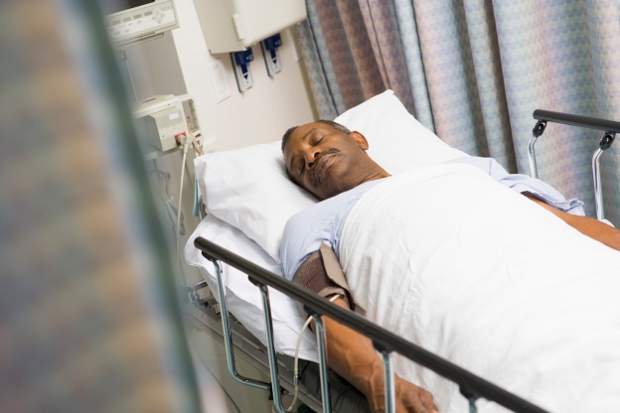


OTTAWA – When Todd Gleck experienced shooting pains throughout his upper body after being greeted by yet another political canvessor, the 41-year-old father of three figured he simply needed to lie down.
By the time emergency personnel had come to take him to the hospital, he understood that health officials were telling the truth when they warned about the dangers of overexposure to the election process.
“It started with a cramp, but I thought it was just from playing hockey with my kids,” Gleck said. “I also had a lot of indigestion all month. I didn’t think much of it because I eat a lot of spicy foods. But my doctor told me it was more serious. He told me I had voter fatigue syndrome.”
“I’m a family man,” he continued. “I’m going to have to sit this [election] out.”
Gleck is one of thousands of Canadians currently suffering from voter fatigue syndrome (VFS), a serious illness caused by overexposure to the electoral process. Experts are warning that overexposure to campaigning can lead to a number of adverse mental and physical health effects, and are strongly cautioning Canadians to limit themselves to one election per four years.
“Just like staring at the Sun, Canadians should limit how much time they spend attending to the debates
and media coverage,” explained Dr. Sam Jenkins, an expert on the long-term health effects of overelecting.
“Individuals can become prone to acute anxiety at the sight of candidate lawn signs. Many develop shortness of breath at the thought of another minority government, or dizziness when examining poll results. I have patients who, even five years after first being diagnosed, still tense up at the sight of a bar graph. Recovery is a slow process and by no means guaranteed. A few will never be able to watch CBC again.”
{rokbox title=|Signs of Voter Fatigue Syndrome :: Photo: The Beaverton with portions licensed by DepositPhotos.com / Petr Kurgan | thumb=|images/stories/article-photos/healthwatch220px.jpg | thumbsize=|220 413|}images/stories/article-photos/healthwatch354px.jpg{/rokbox}
Click to enlarge image.
“We’re looking at an epidemic here,” he continued. “And things are only going to get worse if this election leads to another unstable government. We’re looking at the potential for huge mortality rates.”
According to Jenkins, many Canadians have been taking preventative measures, evidenced by the low voter turnout during previous elections.
“The body’s natural defense mechanism is a condition known as voter apathy, though some are missing this crucial gene and are at high risk.”
Candidates from the top parties have been quick to adjust their campaigns in response to the election casualties. The Conservatives announced they would do away completely with elections and instead offer corporate tax cuts, while the Liberals promised billions in funding to create support programs that would make it easier for Canadians to vote more often.
Liberal leader Michael Ignatieff announced his $4.5 billion “Voter Fatigue Relief and Rehabilitation Program” yesterday.
“We will ensure the health and well-being of Canadians by creating special voter fatigue relief centres inside of big red tents all across the country. When you feel like you’ve had too much election, come inside our red tent and a member of the Liberal Party will help you,” he said.
Many in the international community have sent their condolences and support to the Canadian people in light of their struggles with elections.
“It is truly a humanitarian crisis.” said Myat Thura, a Burmese national, via his government-monitored blog. “My country is very fortunate to not ever have to go through what the Canadian people are going through. I am very thankful that we are not allowed to have elections.”


